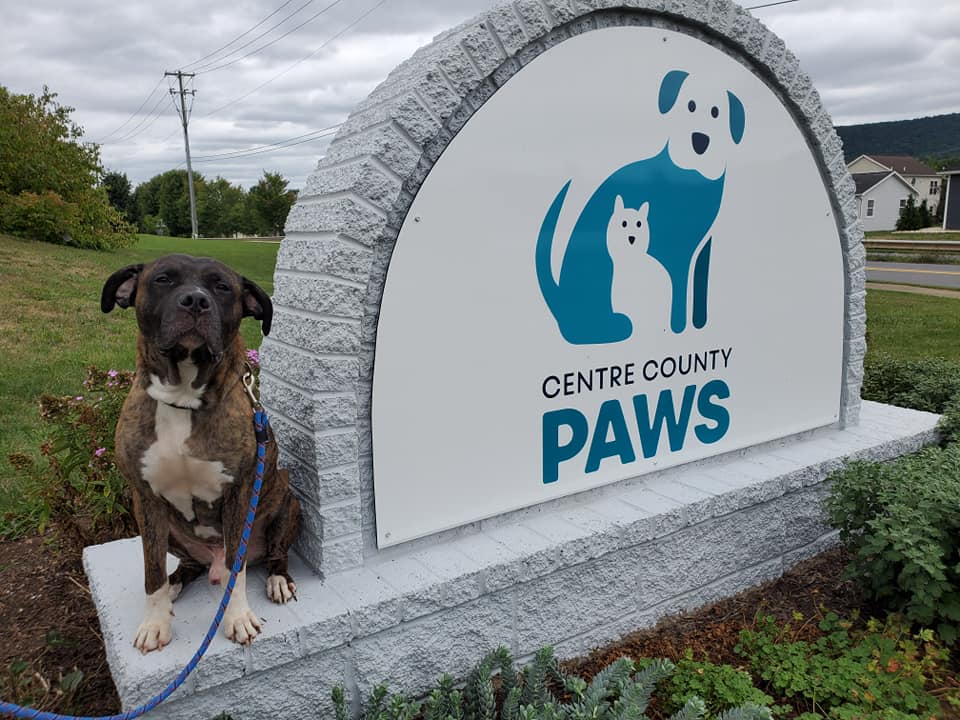Fundraising efforts launched on Wednesday for a new grant program in Centre County that will help loving pet owners with financial need get critical medical care for their animals.
Veterinarian Dr. Fred Metzger, of VCA Metzger Animal Hospital in College Township, has pledged up to $100,000 in matching funds for money raised for the Dr. John Thomas Veterinary Emergency Treatment Fund. The fund, which is the first of its kind in Centre County, will be administered by nonprofit animal shelter Centre County PAWS.
“A limited number of grants will be available every month for community members who are loving pet owners but have exhausted all financial resources to provide needed medical care for their pets,” PAWS executive director Lisa Bahr said. “We hope that our community will support this fund so that we can support our community.”
Fundraising will continue through April 15 and Bahr said the hope is to have the grant program available to residents with demonstrated financial need by the end of April. Metzger noted that because PAWS is a nonprofit organization donations are tax-deductible.
Donations can be made at centrecountypaws.org and questions can be directed to Bahr at [email protected].
The fund is not exclusive to PAWS or Metzger. PAWS will work with other local animal shelters and veterinarians as well to distribute the grants.
Metzger decided to create the fund in memory of Thomas, his friend and mentor who died last year. Thomas began his veterinary career in 1969 and owned and operated Mount Nittany Veterinary Hospital until his semi-retirement in 2009. For the next 10 years he helped found and worked with Allegheny Spay/Neuter Clinic in Woodland, Clearfield County, which completed 50,000 spays and neuters during that time.
“He taught me so much,” Metzger said. “He was not only a great veterinarian and a great friend to animals but he was also a great person. When we lost John last year it was very devastating and I was thinking of something I would like to do to honor him.
“We should never forget him, and this is my way of helping we never forget him through Centre County PAWS.”
Bahr and Metzger said that the goal of the fund is to keep animals in caring and familiar homes even if their owners are unable to afford medical care for them.
“We’re not talking about people who have provided no care for their pets,” Bahr said. “These are people who are really looking after their pets and have hit a wall financially.”
“Our goal is to keep the animals in their homes,” Metzger said. “We don’t want animals surrendered [to shelters] based on a financial decision.”
Veterinary caseloads are up more than 20% nationwide during the COVID-19 pandemic, Metzger said, because of increased pet adoptions and because people are spending more time at home and noticing issues with their animals that they might not have spotted before.

When finances are a problem in seeking medical treatment, it causes hardships for pet owners, veterinarians and shelters.
Metzger said veterinarians will often treat an emergency medical issue the owner cannot afford, but treatments can be expensive and veterinarians have limited financial resources of their own, with staff and operation costs to pay.
“As a veterinarian of over 34 years I’m going to tell you, we have a lot of burnout in veterinary medicine and a lot of times that’s why,” Metzger said. “We have an animal that we could fix but there’s no financial resources. I’m hoping this will help the other veterinarians in our community. They are going to work with PAWS. I’m hoping it helps them out and their staff because it can be very emotional for all parties involved.”
If a pet is surrendered because the owner cannot afford treatment, shelters are tasked with getting the medical care and acclimating the animal to an unfamiliar environment, Bahr said.
“If they just can’t afford it, the animal is the one that’s the victim, and that’s not fair,” Metzger said. “I think this [fund] will be that… safety net for those animals.”
Bahr said pet surrenders because of financial hardship have been an issue throughout her 14 years at PAWS. The shelter and others in the area, however, have made efforts to be a community resource for pet owners and more than simply a place that houses homeless animals until they are adopted.
PAWS, for example, has implemented a spay and neuter assistance program, as well as a pet pantry, which Bahr said has seen increased use during the pandemic.
“We want PAWS and we want animal shelters in our community to become a resource for community members and to be a last resort for people who need to surrender their animals,” Bahr said. “We want surrendering to our shelter to become a last resort. We want to offer community programming… This [fund] is the next level of community support. It’s a huge thing for the community. It’s a huge thing for PAWS and we’re extremely excited to offer it.”



